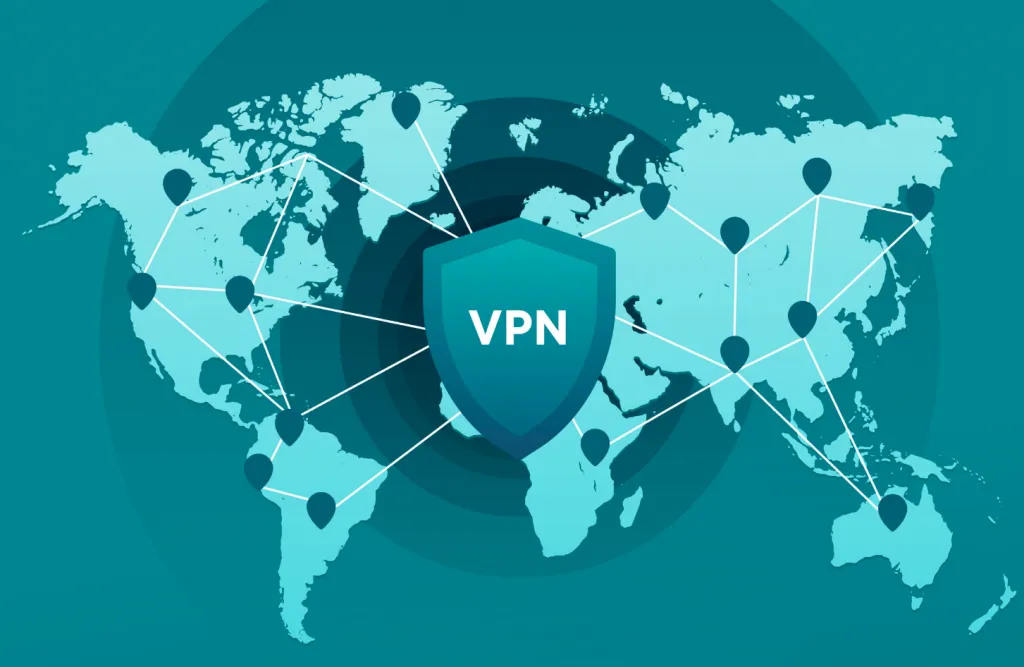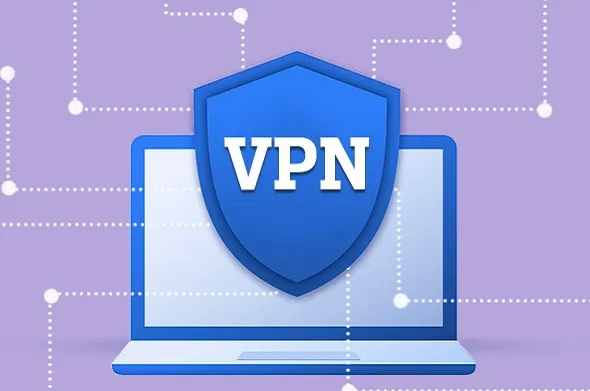The Benefits Of Having a 24/7 Always On VPN. VPNs are often switched on when needed, and rarely is the notion of an always on VPN discussed. VPN users generally activate their service for a specific use case, but in reality, a VPN should stay on at all times.
Before we examine the reasons why, let’s go over exactly what a VPN is, and what it does.
VPN stands for virtual private network, and its core it helps people stay private and secure online. A VPN establishes an encrypted connection, or tunnel, between your device and the VPN servers. Within this tunnel, the data you transmit is safeguarded and hidden from outsiders.
VPNs were once a novel idea and somewhat of a ‘nice to have, but not required’. In 2022, VPNs are indeed a necessary tool in your kit – especially an always on VPN.
An always on VPN is the closest everyday internet users can get to true anonymity without using more complex solutions like the TOR network.
VPNs were first created by Microsoft in 1996, as a way to allow remote workers to access the internal company network more securely. It doubled productivity, and many other companies began to adopt VPNs. VPNs in this sense were the norm for many years – And today, corporate VPNs are still common. After mass adoption by businesses, some developers realised there was a private market for such a tool, especially as the idea of digital privacy came into the spotlight.
The core functionality of a VPN is around how traffic is handled from your device to the internet. Instead of sending traffic directly to your Internet Service Provider (ISP), a VPN first takes the traffic and places into a tunnel, where it encrypts the data. When the data eventually hits the internet, it appears as a complex string of data that is impossible to read by anyone looking in.

The process of making your data unreadable is encryption. Though an intensely mathematical process, it usually involves using a key to scramble and unscramble data being sent from your device. Only your device and the VPN provider have the decryption key – to everyone else, your data appears like a garbled mess.
There are many types of encryption. For the purposes of this post, we won’t be covering all of them, but the most common for VPNs is 256-bit AES encryption. This is the same type of encryption used by banks and the military.
Despite the core similarities around things like encryption, VPN services are often very different to one another. The overwhelming majority of VPN services are purely for location spoofing, which is fooling the internet into thinking you are currently in a different location. This is mostly used for streaming purposes when some services are geolocked, but it is also used in niche but very specific circumstances.
Other VPNs, like SaferNet, focus in more on cybersecurity. While privacy and encryption are fundamental pillars of cybersecurity, they aren’t the whole package. VPNs like SaferNet protect against viruses and malware, like ransomware, remote access trojans, spyware, keyloggers, and even have defenses against common attack vectors such as phishing, which is the primary route for hackers to gain access to a network.
Now, let’s look at why and when an always on VPN is critical to privacy and safety.
Should I Keep My VPN On At All Times?
Privacy And Mitigating Profiling

One of the key reasons why someone would ensure they use an always on VPN is for private browsing. When using an always on VPN, the encryption carried out guarantees that your information stays private. We take privacy for granted, but it is not a guaranteed right online as it once may have been. For exmaple, Congress passed a bill a number of years ago that allowed ISPs to sell customer search history to advertisers. Selling this data may seem trivial to some, but it is a symptom of a larger issue.
When ISPs build a database of our online habits, they’re effectively profiling us. Our identities are sold on without our knowledge or without our consent.
Only privacy has been a discussion for years, but it is only becoming more of a problem. In years to come, it will likely be at the forefront of public discourse.
Online Banking
An always on VPN is particularly helpful when banking or shopping online.
With regards to banking, there is a wealth of sensitive information being shared – Passwords, finance details, bank account information, and so on. These are like gold to a hacker, and without an always on VPN, you leave yourself open to attacks while banking online.
There is somewhat of a caveat here, however. If you are using a location-spoofing VPN and try online banking, and you experience delays. Many services such as PayPal will detect a new location and believe you are a hacker trying to access PayPal from a new location. This is the case with many banking services. When banking using an always on VPN, try use a service that doesn’t location spoof.
Online Shopping

The same reasons you would use an always on VPN while online banking are the same reasons you’d use one for online shopping. Similarly, there is a direct exchange of sensitive information, and you cannot afford anybody looking over your shoulder during this exchange.
Protection On Public Wifi
One the key arguments for using an always on VPN is how data is sent over public wifi. It isn’t obvious to everybody exactly when they’re on public wifi, which means using an always on VPN will keep you protected at all times.
Simply, Public Wifi is wifi outside of your home network. The old examples for these have always been cafes and airports. However in recent years, especially in cities, public wifi is everywhere – Bars, stores, government buildings, and many cities have public wifi that covers entire blocks of downtown.
While convenient, public wifi is not even remotely secure. All data transmitted over public wifi is open to a ‘man in the middle’ attack (MITM). This is when a hacker is on the network (sometimes even having a physical presence) and can imagine all data packages sent on the network.
Now more than ever, an always on VPN is critical when using public Wifi.
Overcoming ISP Bandwidth Limitations

ISPs are businesses and thus are run for profit, however they are known for somewhat shady practices. One of these practices is to limit customer bandwidth to convince their users to upgrade their plan. Because VPNs obfuscate data, they can help overcome bandwidth limitations.
Internet Speed
Internet speed and VPNs are often at odds with each other. This is not always the case though, and an always on VPN can actually help you with your internet speed.
Usually, when people use a VPN, they are location spoofing. This means your connection needs to bounce around before reaching the internet. This will slow down the connection, often quite heavily.
With that said, using an always on VPN which isn’t location spoofing can actually increase speed in certain cases, especially when an ISP is attempting to throttle speeds.
AntiVirus Capabilities
Possibly the most beneficial thing about using an always on VPN which has a cybersecurity focus is having a preventative antivirus solution. Though not offered by many VPN services, it is a core focus for VPN services like SaferNet.
Cybercrime is a huge danger online, more than many internet users know.
There are a range of threats online that an always on VPN can defend you against, including:
Ransomware – Ransomware is a type of malware that encrypts a victim’s device entirely and then demands a monetary fee, or ransom, for the safe release of the data. During this time, the victim cannot access any of their files. Ransomware is a sophisticated type of virus, and will often laterally spread across a network, allowing it take down large scale organizations like hospitals in seconds. Though it only became more popular in the last decade, Ransomware has become the number one threat in the cybersecurity world. Ransomware operators can generate billions of dollars in a successful attack campaign.
Spyware – The primary goal of Spyware is to steal sensitive information and relay it back to some kind of server or service. This information could be anything – internet usage, what is typed on the device, camera or microphone activity – truly any activity that occurs on the device. This information can be relayed to a number of different entities. Very often, these are advertisers or big data companies. In more malicious cases, it could be sent to private servers belonging to a lone hacker, or hacking group.
Botnets – At its core, a Botnet is a network of hijacked host devices that are used in a number of illicit activities, chiefly cyberattacks. The word is a portmanteau of ‘robot’ and ‘network’. Botnets are primarily used to automate large scale attacks, or to distribute additional malware. Users are unaware if a device they own is infected. While infected, besides for carrying out attacks, the host device can also be used to infect nearby devices or devices in any part of the world.
Phishing Attacks – Phishing is perhaps the most well-known attack vector a hacker can utilize. Nearly everyone has seen a phishing attempt at some point in their lives. To put it simply, Phishing is a cybercrime in which a target or targets are contacted by email, telephone or text message by someone posing as a legitimate institution to lure individuals into providing sensitive data such as personally identifiable information, banking and credit card details, and passwords. Phishing is not necessarily all about grabbing credentials, though. Modern phishing methods often revolve around having the target download a file that is covertly malware or enabling macros on a Word document which in turn deploy a virus. Phishing and the act of social engineering come hand in hand.
Remote Access Trojans – Remote Access Trojans, or RATs, are a type of malware capable of infecting just about any kind of device. These type of viruses allow hackers to remotely machine infected hosts, similar to products like Teamviewer. They are often spoken about in tandem with other malware strains such as Spyware, as the two share common traits. Different RATs have varying levels of complexity in their capabilities of monitoring and controlling infected devices. Usually, a remote access trojan will initialize the connection to a command and control center (C2). The C2 connects the machine to the hacker’s own. This will allow a hacker to send a number of commands back to the RAT, which will then execute on the host machine.
There are also a number of other types of malware, but those listed above are the most common types.
Should I Use An Always On VPN?

SaferNet: A Best-in-Class Always On VPN
SaferNet is the perfect solution to the cybersecurity issues that individuals, families, and businesses face today. It not only connects every device using a secure, 24/7 always on, military grade VPN, but it also stops outside cyberthreats, malware and viruses as well. On SaferNet, all users are protected anywhere in the world, all the time, on any cellular or Wi-Fi network. In addition to SaferNet’s VPN and cyber protection, it also offers a range of employee or parental/family internet controls including internet filtering, monitoring, scheduling, and blocking access to websites or even entire website categories
Typically, a business or family would need 3 separate services for a VPN, Malware Protection, and Internet Controls; SaferNet offers all 3 features in one service. SaferNet truly is an endpoint security presence that can be implemented in minutes around the world, on phones, laptops, tablets, and computers at an economical price point that caters to all sizes of businesses and families. SaferNet guarantees a smooth setup and installation process that takes only minutes, and an easily accessible control hub for you to monitor all your employee’s or family members devices; including activity, time spent online, and threats blocked.